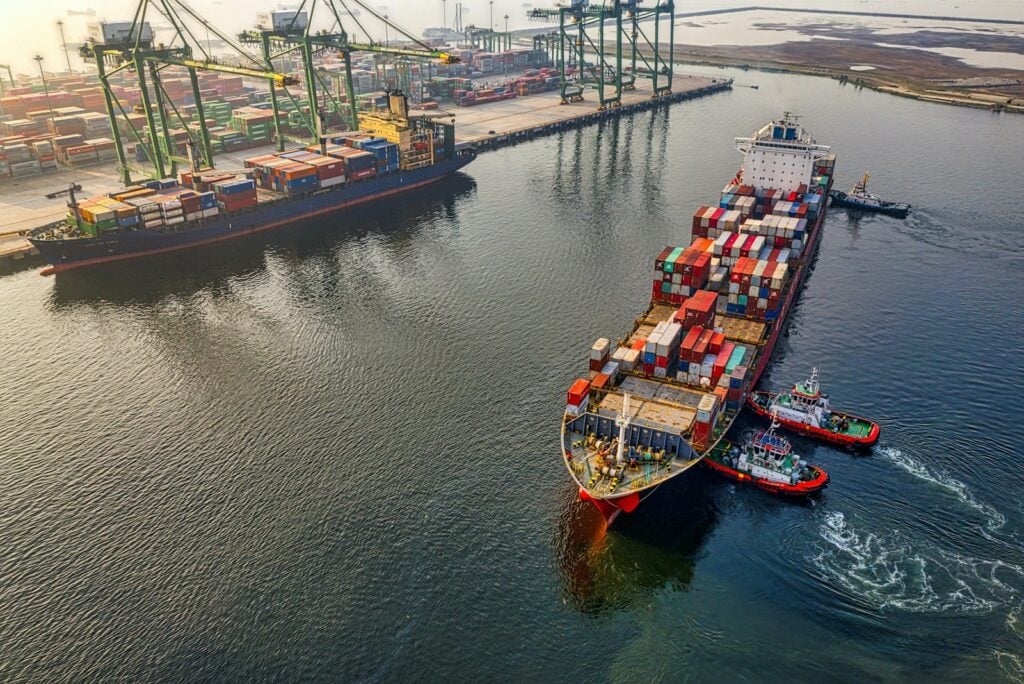Contracts are the cornerstone of any business relationship, and the road haulage sector is no exception. Whether it's a one-off shipment or a regular collaboration, the agreement between the principal (shipper or freight forwarder) and the carrier defines the rights and obligations of each party. However, to protect the players involved, ensure healthy competition and guarantee safety, the law strictly regulates contractual freedom in this area. Ignoring this legal framework can expose parties to costly litigation and penalties. This article explores the essential rules governing road haulage contracts in France, a key element of the overall regulation of the sector.
The essential elements of the contract of carriage
Even if a verbal agreement can exist, the complexity of transport operations and legal requirements make a written contract strongly recommended, or even implicitly required by the need to mention certain clauses. The law (in particular the LOTI and the Commercial Code) requires the contract to clearly define a number of fundamental elements.
Mandatory clauses
All contracts for the carriage of goods by road must specify at least :
- The precise nature and purpose of the transport : Which goods? What quantities? What are the special features (dangerous goods, temperature-controlled goods, etc.)?
- Terms and conditions : The pick-up point and delivery point, the route if agreed, the deadlines.
- The respective obligations of the parties : Who loads? Who is unloading? Who is responsible for packing and cushioning? What are the information obligations?
- The price of transport and ancillary services: Main freight, but also any additional costs (waiting, specific handling, ad valorem insurance, etc.).
These basic elements are essential to frame the operation.
The consignment note: more than just an accompanying document
The consignment note (national or international CMR) formalises the transport contract and serves as proof that the goods have been taken over and that instructions have been given to the carrier. It must accompany the goods throughout the journey and contain essential information (name and address of the sender, the recipient, the carrier, place and date of acceptance, planned place of delivery, nature and quantity of the goods, transport costs, special instructions, etc.). It is drawn up in several copies (one for the consignor, one for the consignee and one for the carrier). It is essential that it is drawn up correctly, as it is proof (in the absence of proof to the contrary) of the terms of the contract and of the apparent condition of the goods at the time of collection. Failure to draw it up or incomplete completion may render the parties liable in the event of a dispute.
Definition of lead times and penalties
To avoid abuses linked to excessive waiting times for loading or unloading, the law requires that the contract (or the general conditions that apply to it) clearly define the times allocated for these operations. Even more importantly, the contract must specify how the time is to be calculated:
- Additional remuneration due to the carrier if these times are exceeded by the customer or consignee.
- Penalties payable by the carrier if it is responsible for the delay in performance of the transport (collection or delivery).
The absence of these clauses would render the contract non-compliant.
Strict control of transport prices
Pricing is a central element of the contract, but it is not entirely free. To preserve the economic viability of transport companies, which are often subject to strong competitive pressure, and for safety reasons, the legislator has introduced a number of safeguards.
Fair remuneration and a ban on loss-making transport
The law affirms the principle that the terms and conditions of the contract must allow a fair and equitable treatment of all parties. fair remuneration for the carrierThese charges must cover the real costs of the service provided under normal organisational and productivity conditions. This provision forms the basis of the ban on "loss-making transport".
Offering or knowingly charging an unreasonably low price, below the cost of the service (taking into account direct and indirect charges), is a criminal offence that carries heavy penalties (fines of up to several tens of thousands of euros). This prohibition applies not only to carriers who agree to operate at a loss, but also, and above all, to principals (customers or commission agents) who impose such charges. Proving that a price is unfairly low can be complex, and is often based on reference costs published by the Comité National Routier (CNR). Compliance with this rule is linked to thefinancial capacity requirement necessary to practise.
Mandatory indexation to the cost of fuel (foot of diesel invoice)
Given the volatility of fuel prices, which account for a significant proportion of operating costs, the law imposes a compulsory indexation mechanism. All transport contracts must include a clause specifying how changes in the cost of diesel fuel are to be reflected in the price of transport. This must appear clearly on the invoice ("foot of the diesel invoice"). Failure to comply with this obligation will be penalised.
Ban on dangerous remuneration clauses
Any remuneration clause (principal or accessory, in the contract of carriage or even in the driver's contract of employment) which is likely to compromise safety is automatically null and void. This applies in particular to any bonus or variable pay that directly or indirectly encourages the driver to exceed the driving or working times authorised by the law. traffic regulations.
Remuneration for ancillary services
The principle is that any service provided must be remunerated. Contracts may not provide for flat-rate payments that would conceal unpaid services, such as excessive waiting times. If the contract provides for time allowances for loading/unloading, any excess must give rise to additional remuneration, in accordance with the terms of the contract.
Subcontracting in the road transport sector
Subcontracting is a common practice in the road haulage industry, but it is also regulated to avoid abuse and the dilution of responsibilities.
Limited and controlled recourse
In principle, a carrier who concludes a contract of carriage must perform it himself. He may only subcontract in two main cases:
- If it is itself a freight forwarder (also a regulated profession).
- In exceptional and limited cases, such as a temporary and unforeseeable overload of activity that would make it materially impossible for it to perform the contract using its own resources.
In the latter case, the use of subcontractors must be registered and declared to the authorities.
Responsibility of the principal
The principal who uses a subcontractor must remain vigilant. A specific law passed in 1992 aims to protect subcontractors against unfairly low prices. The principal (main carrier or freight forwarder) may be penalised if he concludes a subcontract at a price that does not cover the subcontractor's expenses.
Standard subcontracting contract
There is a specific standard contract which applies, unless otherwise agreed in writing, to the relationship between the main carrier (principal) and the sub-contracting carrier (performer). In particular, it defines the mutual information obligations and responsibilities.
Standard contracts: a legal safety net
To simplify contractual relations and provide a clear legal framework in the absence of a detailed written agreement between the parties, the law provides for the establishment of standard contracts.
Principle of suppletive application
These standard contracts, approved by decree after consultation with professional organisations, apply to by operation of law in the absence of a written agreement to the contrary between the parties. If a written contract exists but is silent on certain points, the corresponding provisions of the applicable standard contract will supplement it. They therefore constitute a reference and a "safety net".
The main standard contracts
There is a general standard contract applicable to all forms of transport for which there is no specific standard contract. In addition, specific standard contracts have been drawn up to take account of the particular characteristics of certain types of transport:
- Temperature-controlled transport of perishable goods.
- Tanker transport.
- Transport of live animals.
- Transportation of cash and valuables.
- Transport of rolling stock.
- Transport of indivisible objects (abnormal loads).
- Hire of industrial vehicles with driver.
- Subcontract (mentioned above).
It is important for both principals and carriers to know the content of the standard contract that potentially governs their activity, because its clauses (liability, deadlines, payment, etc.) will apply if their own contract is non-existent or incomplete. Recently, the law specified that for international transport, the French standard contracts only have suppletive application and cannot take precedence over the provisions of international conventions (such as the CMR).
The road haulage contract is much more than a simple commercial agreement. It is a legal document governed by mandatory rules designed to balance the relationship between the parties, ensure fair remuneration for the haulier and guarantee safety. When drafting and negotiating these contracts, particular attention must be paid to the mandatory clauses, the price framework, the rules on sub-contracting and the existence of standard contracts. A good grasp of this legal framework is essential to secure operations and prevent disputes.
A well-drafted transport contract protects your interests. Our firm can help you negotiate and draft your commercial agreements.
Sources
- Loi n° 82-1153 du 30 décembre 1982 d'orientation des transports intérieurs (LOTI), as amended (in particular articles 6, 8, 9, 32, 33).
- Commercial Code (in particular Articles L132-8 and L132-9 concerning consignment notes).
- Transport Code.
- Law no. 95-96 of 1 February 1995 on unfair terms and the presentation of contracts (...) (article 23-1 on carriage below cost, article 24 on diesel indexation).
- Law no. 92-1445 of 31 December 1992 on subcontracting relations in the road haulage sector.
- Decrees approving standard contracts applicable to public road haulage (Decree no. 99-269 of 6 April 1999 for the general standard contract, and specific decrees for other types of transport, leasing and subcontracting).




